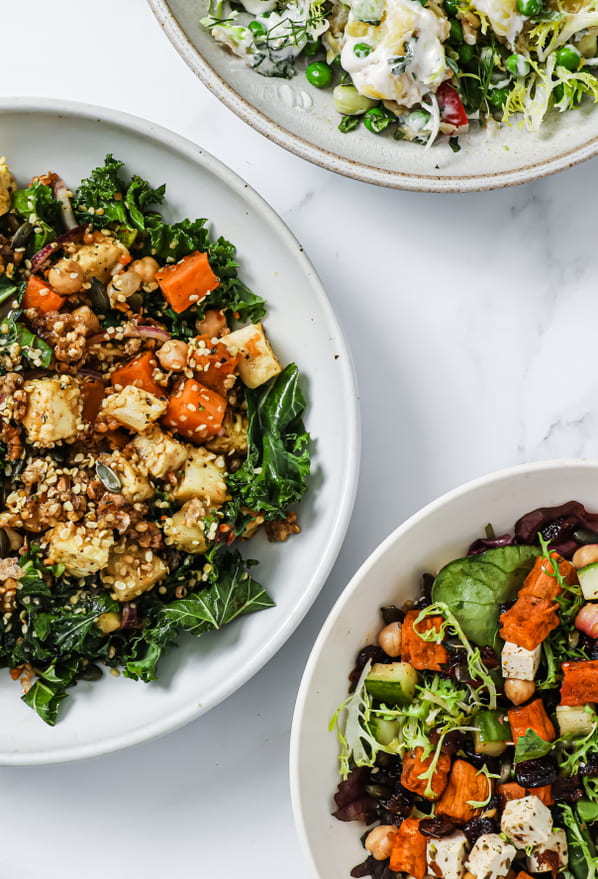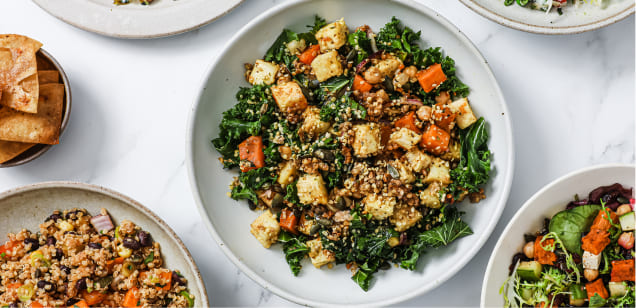The health effects of hyper processed vegan food
Veganism - it’s basically the poster diet for health, right? Yet, with the rise in ultra-processed vegan options, it seems even plant-based eating has its dangers.
Hyper or ultra-processed foods (UPFs) are a fairly new invention that have swept across supermarkets throughout the globe. Their characteristics… Affordable, delicious and deadly.
While there is a known relationship between UPFs, obesity and poor nutritional health, research suggests that they also cause an increased risk of heart disease, stroke, type-2 diabetes, frailty, depression and cancer. This link is so strong in the case of processed meats that products have now been classified as a “Group 1 Carcinogen”. Cigarettes, alcohol and solar exposure are grouped within the same category.
However, even while following a plant-based diet, the dangers of ultra-processed foods are still a consideration.
With the increasing popularity of plant-based diets, the production and demand for easy vegan alternatives is also on the rise. Vegan “meat” is created through processing mycoproteins, hydrogenated vegetable oils, processed soy, flavour and colour additives. The danger with plant-based alternatives is that they are perceived as healthier than their meat counterpart even though they are still considered UPFs. The reality is that many of the ‘healthy’ products in our supermarkets are highly processed.
In fact, over half the calories eaten by the average UK person (50.7%), come from highly processed food sources. New research has also linked the consumption of highly processed food to “all-cause mortality”.
So firstly, what makes food highly or ultra-processed?
Well, all food can be processed. Even natural foods like potatoes are processed when peeled and boiled, or apples when washed and chopped. Humans have been processing food since at least 400,000 years ago when humans decided to cook meat from their hearths. Minimal food processing like cutting, cooking and pickling has helped our evolution. These simple processes allow better digestion of our food and kill harmful bacteria that could make us very sick. Human bodies can extract more nutrients and calories from cooked food and some researchers such as Richard Wrangham, writer of ‘Catching Fire: How Cooking Made Us Human’ even believe that cooking food is one of the factors that enabled humans to evolve away from apes and into what we are today. However, in modern life, food processing has been developed to decrease nutritional value and increase affordability, company profit and convenience.
What is classed as “ultra-processed food”?
Any food that has gone through multiple processes that greatly change its natural composition is highly processed. UPFs include chemicals, preservatives, additives and hydrogenated oil to reduce fat or sugar content, extend shelf time, and enhance flavour, colour or texture. Some of the most prevalent foods are:
- White flour,
- White pasta,
- White bread,
- Crisps,
- Sweetened juices,
- Fizzy drinks,
- Sweetened breakfast cereals,
- Margarine,
- Reconstituted meat (e.g. bacon or hot dogs),
- Plant-based ‘meat’ alternatives,
- Sweets,
- Biscuits and cakes.
What happens when we eat ultra-processed foods?
When we eat ultra-processed foods, we consume calories that could instead be consumed through low-processed foods that have a higher nutrient density and are free from nasty chemicals. Due to the low nutrient density and low fibre content, the calories in ultra-processed food are burned quicker than those in low-processed food. So if you were to eat a 500 calorie meal that was composed of ultra-processed foods, you would often become hungry earlier than if you had eaten 500 calories of low-processed foods as your body quickly metabolises the simple carbohydrates and sugars.
However, the risk can also be invisible. A 2018 French study showed a strong link between consuming ultra-processed foods and irritable bowel syndrome (IBS) as UPFs damage the gut microbiology. Artificial non-caloric sweeteners, a common ingredient in UPFs, were also shown in a 2018 Mexican study to increase the risk of Crohn's disease, ulcerative colitis, IBS and IBD. These autoimmune conditions can have dire effects on the body, resulting in bowel cancer, bowel damage and resection (partial removal) as well as the onset of secondary autoimmune conditions.
By eating ultra-processed foods over low-processed foods, you are choosing food that has a low nutrient density that will not satiate your body as thoroughly or long as low-processed food sources.
Why do processed foods cause poor health?
While the main cancer-causing perpetrators continue to be the UK's most loved breakfast of reconstituted meat (bacon and sausages) there is an increased risk for even plant-based individuals. As the number of vegans increases, so does the number of ultra-processed “meat alternatives” and other processed foods. Now more than ever we should try to reflect on the journey of our food - from field to plate. For the long term sake of our health and the Earth, reducing ultra-processed food intake is imperative.
References:
- Rachel Krantz. How Going Vegan Healed My Relationship With Food. Bustle. 2017.
- Tomova A, Bukovsky I, Rembert E, et al. The Effects of Vegetarian and Vegan Diets on Gut Microbiota. Front Nutr. 2019;6:47. 2019.
- Cancer Council NSW. Red meat, processed meat and cancer.
- Rauber, Fernanda et al. Ultra-Processed Food Consumption and Chronic Non-Communicable Diseases-Related Dietary Nutrient Profile in the UK. Nutrients vol. 10,5 587. 9 May. 2018.
- Courtney Davison. What are highly processed foods? Forks Over Knives. 2021.
- Open Food Facts. Nova groups for food processing.
- Graham Lawton. Every human culture includes cooking - this is how it began. New Scientist. 2016.
- Fiolet T, Srour B, Sellem L, Kesse-Guyot E, Allès B, MÃjean C et al. Consumption of ultra-processed foods and cancer risk: results from NutriNet-Santé prospective cohort. BMJ. 2018.
- Schnabel, Laure MPH; Buscail, Camille MD; Sabate, Jean-Marc MD, PhD; Bouchoucha, Michel MD; Kesse-Guyot, Emmanuelle PhD; Allès, Benjamin PhD; Touvier, Mathilde PhD; Monteiro, Carlos A. MD, PhD; Hercberg, Serge MD, PhD; Benamouzig, Robert MD, PhD; Julia, Chantal MD, PhD. Association Between Ultra-Processed Food Consumption and Functional Gastrointestinal Disorders: Results From the French NutriNet-Santé Cohort, American Journal of Gastroenterology. August 2018.
- Nallely Bueno-Hernández, Brenda Lorena Jiménez-Cruz, Mónica Zavala-Solares and Guillermo Meléndez-Mier. Association of Natural and Artificial Nonnutritive Sweeteners on Gastrointestinal Disorders: A Narrative Review. J Nutr Food Science. 2018.



